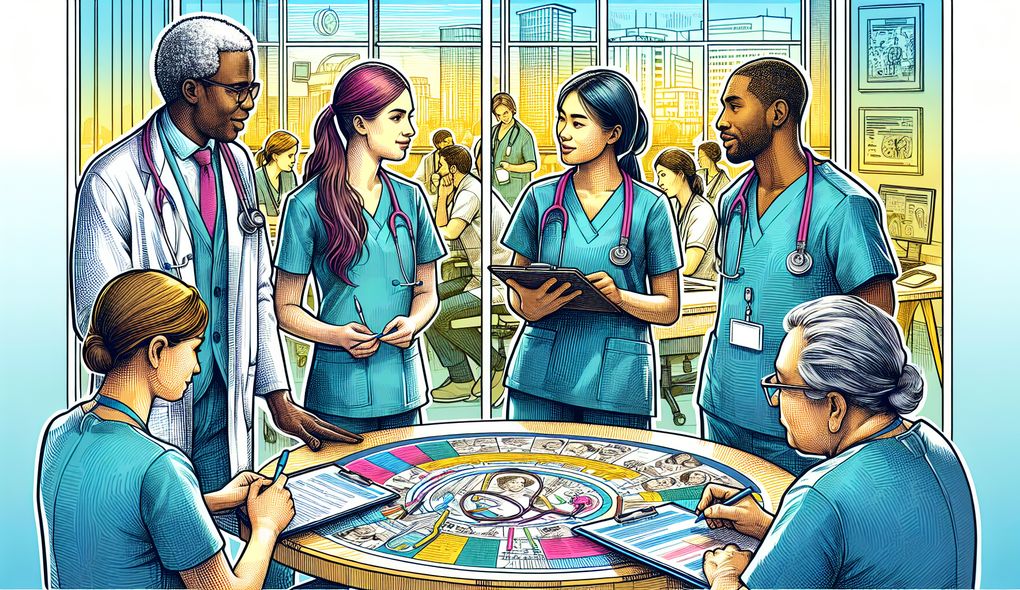Can you give an example of a time when you noticed a mistake or error in patient records? How did you handle it?
JUNIOR LEVEL

Sample answer to the question:
Yes, I can give you an example of a time when I noticed a mistake in patient records. In my previous role as a Patient Coordinator, I was responsible for managing and updating patient records in the electronic health record system. One day, while reviewing a patient's record, I noticed that their medication dosage was incorrect. It was higher than the prescribed amount. I immediately brought this to the attention of the healthcare provider responsible for the patient's care. We discussed the issue and confirmed that it was indeed an error. The healthcare provider then adjusted the dosage and updated the patient's record accordingly. To prevent similar errors in the future, I proposed implementing a double-checking system where another staff member would review medication dosages before they are entered into the system. This suggestion was well-received and implemented, enhancing the accuracy of patient records.
Here is a more solid answer:
Certainly! Let me share with you an experience I had as a Patient Coordinator where I noticed an error in a patient's records and how I handled it. During my time in this role, I was responsible for managing and updating patient records in the electronic health record system. One day, while reviewing a patient's record, I noticed that their medication dosage was recorded incorrectly. It was higher than the prescribed amount. Recognizing the potential risk to the patient's health, I immediately contacted the healthcare provider responsible for the patient's care. I explained the situation and provided the necessary details about the error. The healthcare provider appreciated my vigilance and promptly reviewed the patient's records. Together, we confirmed that it was indeed an error and discussed the appropriate corrective measures. The healthcare provider adjusted the dosage and updated the patient's record accordingly. To improve the accuracy of patient records and prevent similar errors, I took the initiative to propose implementing a double-checking system. This system would involve having another staff member review medication dosages before they are entered into the system. My suggestion was well-received, and it was implemented as a standard procedure. This initiative not only helped to catch and correct errors but also enhanced communication and collaboration within the team.
Why is this a more solid answer?
The solid answer expands on the basic answer by providing more specific details about the actions taken to handle the mistake, proposing a solution to prevent future errors, and emphasizing the importance of collaboration.
An example of a exceptional answer:
Absolutely! Let me share with you a specific incident that highlights my attention to detail, problem-solving skills, communication abilities, and organizational skills as a Patient Coordinator. While managing and updating patient records in the electronic health record system, I came across a mistake in a patient's file. Upon reviewing the record, I noticed that the patient's allergies were not accurately recorded. This discrepancy had the potential to jeopardize the patient's well-being, especially during emergencies. Understanding the urgency, I immediately reached out to the healthcare provider responsible for the patient's care and alerted them about the error. I provided the necessary details, including the correct allergy information, to ensure accurate and up-to-date records. Additionally, I collaborated with the provider to develop a plan to prevent similar errors in the future. We realized the importance of improved communication and established a protocol for cross-checking patient information with the patient themselves during each visit. Furthermore, I took it upon myself to conduct a comprehensive review of all patient records to identify any potential errors and discrepancies. This proactive approach helped identify and rectify several other mistakes, ensuring that all patient records were accurate and reliable. I also worked closely with the IT department to streamline the electronic health record system's user interface, making it more user-friendly and reducing the likelihood of data entry errors. Overall, my commitment to attention to detail, problem-solving, communication, and organizational skills enabled me to not only address the initial mistake promptly but also implement measures to minimize errors and enhance the overall efficiency of the patient records management process.
Why is this an exceptional answer?
The exceptional answer provides even more specific details about the candidate's actions, including reaching out to the healthcare provider, collaborating on a solution, conducting a comprehensive review of all patient records, and working with the IT department to improve the system. It also highlights the candidate's commitment to patient safety and overall efficiency.
How to prepare for this question:
- Familiarize yourself with the electronic health record system and understand the process of managing and updating patient records.
- Think about your previous experiences in healthcare or administrative roles where attention to detail and problem-solving were crucial.
- Reflect on how you have communicated issues or challenges effectively with healthcare providers or other team members.
- Consider your organizational skills and how you have managed multiple tasks in a fast-paced medical office environment.
- Brainstorm potential solutions and improvements you could propose to prevent errors in patient records and enhance overall efficiency.
What are interviewers evaluating with this question?
- Attention to detail
- Problem-solving
- Communication
- Organizational skills

